Columbus Day Celebrates an Ongoing Christian Nationalist Threat to American Democracy
The roots of Christian Nationalism reach back before the founding of our Republic to Columbus and the Christian Doctrine of Discovery.
Dear #WhiteTooLong readers,
I’ve just gotten some rare news in our digital world. Two online pieces connected to The Hidden Roots of White Supremacy are migrating from the digital world to print. I was thrilled to see that a review of my book ran in the print edition of The New York Times last Sunday. And an excerpt of my book will run in the print edition of TIME for Columbus Day/Indigenous Peoples’ Day week.
Today, I’m sharing an essay where I connect the dots between the worldview of Columbus Day and white Christian Nationalism and argue that embracing Indigenous Peoples’ Day would be an important step forward for the country. Thanks for reading,
Robby
Columbus Day Celebrates an Ongoing Threat to American Democracy
Of the 12 federal holidays, Columbus Day is one of only three celebrating a person. Among that trinity, which includes the celebrations of the births of George Washington and Martin Luther King Jr., it remains peculiar. Unlike the first president of the nation and the twentieth-century century civil rights leader, Christopher Columbus has only a tenuous connection to what became the United States. Although many of us were erroneously taught that “Columbus discovered America,” he never set foot on soil within our national borders and famously didn’t comprehend that he had encountered lands unknown to Europeans until his third voyage in 1498.
But by tethering their story to Columbus, early leaders of the United States magically endowed the fledgling nation with a three-hundred-year pedigree, a genesis story whose “in the beginning” implied its birth was the outworking of Providence. They invented a past that gave their present holdings, and their rapacious ambitions, the veneer of divine inevitability.
The sweeping power of this narrative strategy, however, lay not just in the epic voyages of Columbus, but in a religious doctrine he relied upon and indeed helped crystallize: the Christian Doctrine of Discovery. As Spain and Portugal ramped up their exploration and colonization efforts in the latter half of the fifteenth century, the self-described Christian kings and queens sought a moral mandate that would simultaneously address their obligations to newly discovered peoples and mitigate bloodshed between themselves.
They turned to the closest thing to international law that existed at the time, the Roman Catholic Church. In a series of papal proclamations between 1452 and 1493 (the last precipitated by Columbus’s return from his first voyage to the Americas), a new theology crystalized for the new world. While the theological constructions of the Doctrine of Discovery were complex, their logic was straightforward.
The principal question for determining whether any newly discovered peoples had human rights Europeans were bound to respect was this: “Are they Christian?” If the answer was negative, Indigenous People were categorized as “enemies of Christ,” whose lands were subject to occupation and whose goods were subject to confiscation. If Indigenous People resisted the imposition of European authority, the new arrivals carried the permission of the crown and the blessing of the church to “reduce their persons to perpetual slavery” or to kill them outright.
Most of the controversy around the celebration of Columbus Day in the US has focused on Columbus’s barbaric treatment of Indigenous people. These individual deeds are indeed appalling. But lionizing Columbus implicitly celebrates something much more systemic: the setting of the colonizer’s moral compass with European Christian supremacy as due north. This moral and religious orientation directed the entire settler colonist project: the genocide and forced removal of Indigenous people from their lands and the subsequent kidnapping and enslavement of Africans to transform those lands into profit producing plantations.
There is now a three-decades long movement, initially led by Indigenous People, to replace the celebration of Columbus with a day honoring the original inhabitants of these lands. Indigenous Peoples’ Day was first celebrated in Berkeley, California in 1992 on the 500th anniversary of the arrival of Columbus in the Americas. Since then, more than a dozen states and over 130 cities have adopted the holiday. In 2021, President Joe Biden became the first sitting president to issue an official proclamation of Indigenous Peoples’ Day.
Amid rapid demographic changes—today only 42% of Americans identify as white and Christian—and cultural reckoning with the legacy of racism in our nation’s history, replacing Columbus Day with Indigenous Peoples’ Day would represent a meaningful step forward. Columbus Day inevitably celebrates both the colonizer and the religious worldview that authorized the violence unleashed in his wake. But Indigenous Peoples’ Day points Americans forward toward our higher principles.
As President Biden said in his 2021 Indigenous Peoples’ Day proclamation, “Our country was conceived on a promise of equality and opportunity for all people — a promise that, despite the extraordinary progress we have made through the years, we have never fully lived up to. That is especially true when it comes to upholding the rights and dignity of the Indigenous people who were here long before colonization of the Americas began.” A federally recognized Indigenous Peoples’ Day would simply be the right thing to do to honor our full history, our demographic present, and our democratic aspirations.
But there is another, more urgent reason we should embrace this change. The anti-democratic orientation of the Doctrine of Discovery still lives among us today. More than five centuries after its emergence, 30 percent of Americans, including majorities of Republicans and white evangelical Protestants, agree with its central tenet: that “America was intended by God to be a promised land where European Christians could set an example for the rest of the world.” While contemporary analysts refer to this aggrieved and increasingly militant minority with the term “white Christian nationalism,” the roots of this threat to democracy reach back before the founding of our Republic to the Doctrine of Discovery.
Our nation has never fully answered this question: Are we a divinely ordained promised land for European Christians, or are we a pluralistic democracy where everyone, regardless of race or religion, stands on equal footing as citizens? If we are to finally embrace our identity as a pluralistic democracy, we can’t abide an ongoing celebration of a worldview that erodes that commitment. But if instead we pause each year to honor Indigenous People alongside George Washington and Martin Luther King Jr., that observance will reorient us to the ongoing work of achieving the yet unfulfilled promise of our democracy.
ICYMI on #WhiteTooLong
Scenes from Mississippi
Dear #WhiteTooLong readers, Greetings from the road, and welcome to the new subscribers from Mississippi. I’m thankfully traveling back to DC today, where I’ll have 10 days at home before heading out to the next stop on my book tour, a conversation with my friend Greg Garrett at Baylor University on October 5th. Greg has a fantastic new book out—
WATCH: My Conversation about THE HIDDEN ROOTS OF WHITE SUPREMACY with Joy Reid on MSNBC
Dear #WhiteTooLong Readers: Thanks so much to those of you who have purchased my new book, The Hidden Roots of White Supremacy and the Path to a Shared American Future. You’ve helped make this a tremendous launch week. It’s still trending on multiple platforms, including Amazon, where it has stayed steadily in the top 50 of ALL BOOKS for the last 24 hour…
The Story of Emmett Till is the Story of America
On August 14, 2023, six white former Mississippi policy officers plead guilty to torturing two Black men with tasers and a sex toy for 90 minutes, after kicking in the door to the men’s home without a warrant. The group, which dubbed itself “the goon squad,” taunted them with racial slurs, telling the men to “stop taking advantage of a white woman who l…



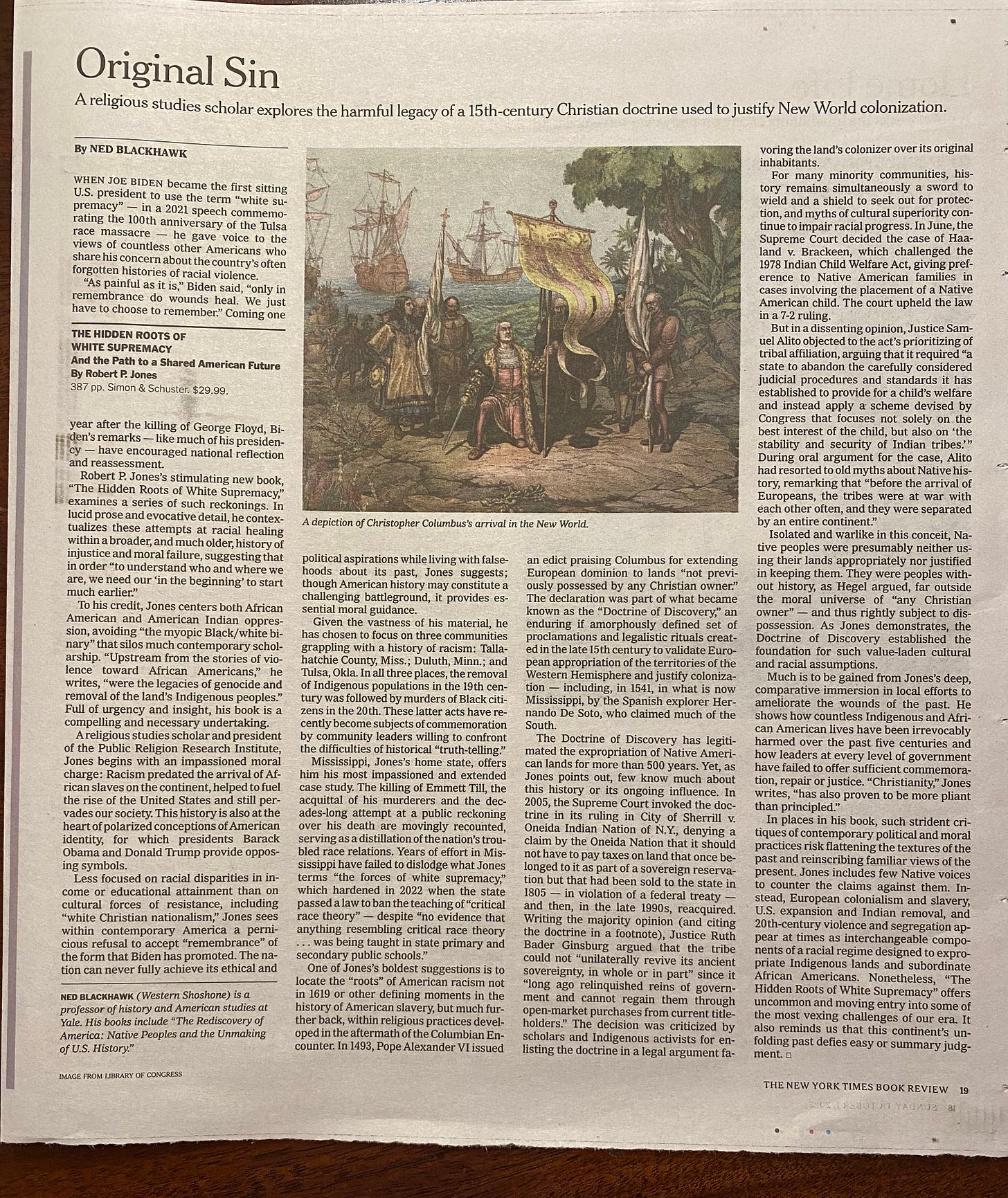
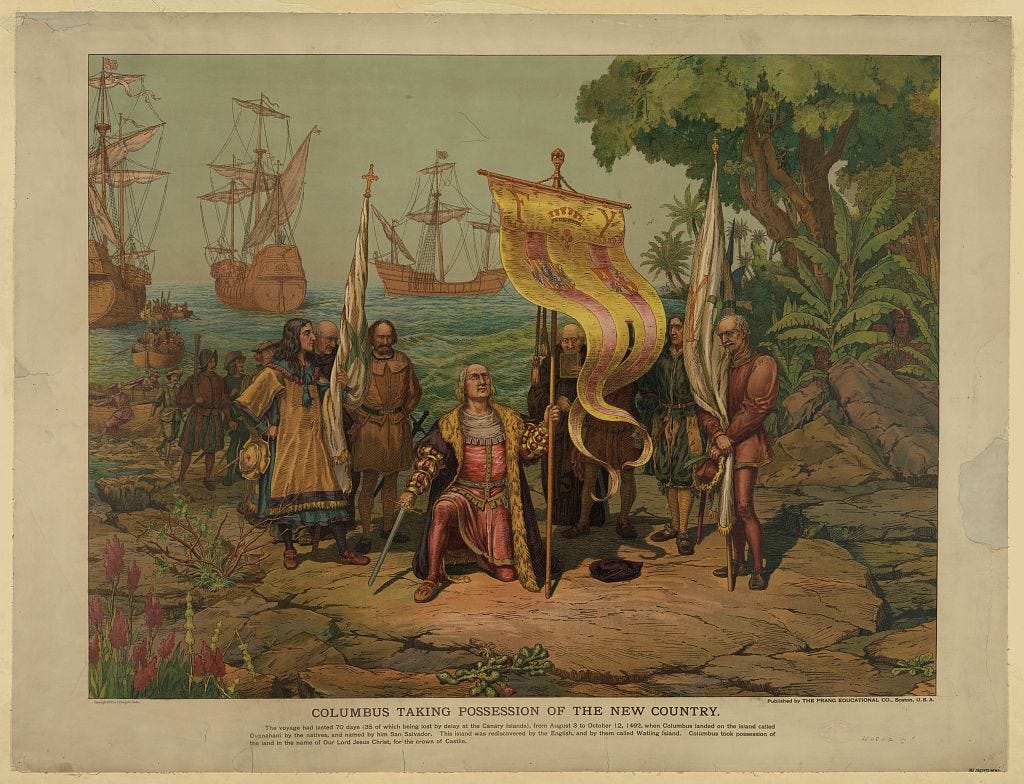
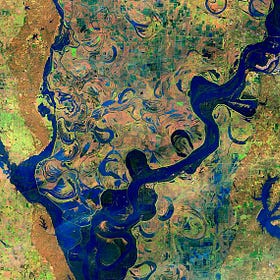
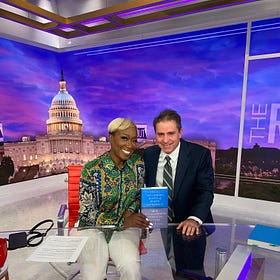
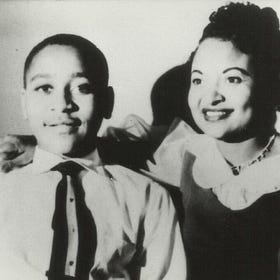
Robert, I am currently about two-thirds of the way through “Hidden Roots” and have so many notes, highlights and dog-eared pages. The historical record of your thesis is truly remarkable.
You are so very right about honoring Indigenous peoples instead of the man who unleashed the genocidal Doctrine which still haunts our nation today.
Reading this post reminded me of a quote from “Hidden Roots”:
“They ask, “Why do we still gotta talk about this, why does this still matter?” There’s something in the roots of our community that needs to be dug out so that this can never happen again. And that’s the reality, we’re talking about it because we never fixed the problem. We never solved the problem.”
(Pg 173 print ed).
Celebrating Indigenous Peoples Day would be a great first step. We cannot fix what we refuse to name. Thank you for your moral clarity.
I really appreciate that you wrote this piece. The Christian Doctrine of Discovery may seem like some obscure historical footnote, but its tentacles reach deeply into so many aspects of our modern world. It has been cited by the US Supreme Court on several occasions, and seems to underlie arrogant attitudes of white supremacy. Thank you for your insights.